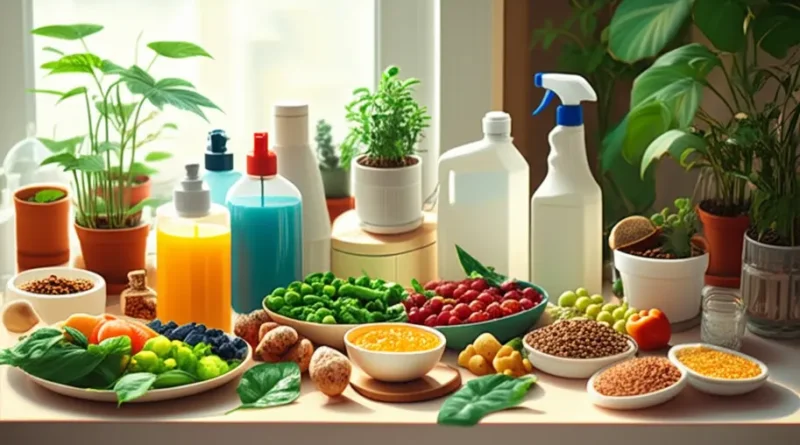How to Reduce Toxins in Your Everyday Life
In our modern world, we are constantly surrounded by various types of toxins, from the air we breathe to the products we use daily. While it’s nearly impossible to eliminate all exposure to these harmful substances, there are practical steps you can take to significantly reduce toxins in your life. In this blog post, we will explore actionable strategies that will make your surroundings healthier, your body cleaner, and your overall well-being better.
Understanding Toxins
Toxins are harmful substances that can negatively affect your health. They can enter the body through various channels—breathing in polluted air, consuming contaminated food and water, and absorbing chemicals through the skin from personal care products and household cleaners. Chronic exposure to these toxins can lead to a range of health issues, from respiratory problems to hormone imbalances, and even more severe conditions such as cancer.
1. Evaluate Your Diet
Your diet is the cornerstone of your health and a significant source of toxins. Here are some steps to clean up your eating habits:
- Choose Organic: Opt for organic fruits and vegetables when possible. The USDA organic certification ensures that these products are grown without synthetic pesticides or fertilizers, reducing your pesticide exposure.
- Read Labels: Pay attention to food labels and avoid foods with long lists of artificial ingredients, preservatives, and additives. Choose whole, minimally processed foods instead.
- Stay Hydrated: Drink filtered water to reduce exposure to contaminants found in tap water, such as chlorine and heavy metals. Consider a water filtration system that meets your needs.
2. Clean Up Your Home
Your home should be a sanctuary, free from harmful chemicals. Here are some ways to create a healthier living space:
- Natural Cleaning Products: Swap traditional cleaning products for natural alternatives. Items like vinegar, baking soda, and lemon are excellent non-toxic cleaners.
- Avoid Air Fresheners: Many air fresheners contain phthalates and synthetic fragrances. Instead, use essential oils or simply open a window for ventilation.
- Minimize Plastics: Try to reduce plastic use, as many plastics contain harmful chemicals like BPA. Use glass or stainless steel containers for food storage instead.
3. Be Mindful of Personal Care Products
Your skin absorbs a significant amount of the products you apply, so be cautious with what you use:
- Read Ingredient Labels: Many personal care products contain parabens, sulfates, and synthetic fragrances. Choose brands that use natural ingredients.
- Simplify Your Routine: The fewer products you use, the less exposure you have to toxins. Stick to the essentials—cleanser, moisturizer, and sunscreen.
- Make Your Own Products: Consider DIY personal care products using simple ingredients like coconut oil, shea butter, and essential oils.
4. Reduce Indoor Air Pollution
Indoor air can be more polluted than outdoor air, impacting your health:
- Ventilation: Open windows regularly to allow fresh air to circulate. If outdoor air quality is poor, consider using an air purifier with a HEPA filter to reduce airborne particles.
- Houseplants: Some houseplants, like spider plants and snake plants, can help filter air toxins naturally.
5. Mind Your Environment
The environment around you plays a significant role in your exposure to toxins:
- Limit Exposure to Polluted Areas: Try to avoid high-traffic areas with poor air quality. If you live in a city, consider investing in an air quality monitor to stay informed.
- Care for Your Yard: If you garden or maintain landscaping, use organic fertilizers and pesticides to limit chemical exposure.
By being proactive about your daily choices, you can create a healthier environment for yourself and your family. While you may not be able to eliminate all toxins, implementing these strategies can significantly reduce your exposure and promote overall wellness.

